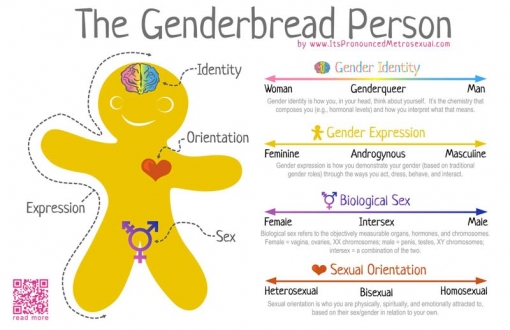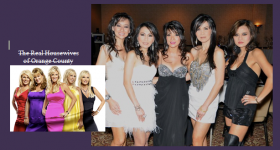It's cookie time
in America. Right now, little girls all across the country are standing in
front of supermarkets, waiting to derail your new years’ resolutions with a
single box of thin mints. These devilish little entrepreneurs you know as the
Girl Scouts, an organization founded in March 1912 by Juliette Gordon Lowe to
help American girls build courage, confidence, and character. Today’s
organization focuses on achieving those goals by fostering leadership skills,
environmental stewardship, and cultural exchange.
It
all sounds like wholesome, nonpartisan fun, but evidently the scouts are not
squeaky-clean enough to avoid public scrutiny. First were calls from the
health-conscious to remove trans-fat content from the cookies, which the Girl
Scouts obliged. That’s fine with me, although it's possible the cookies could
have been laced with arsenic and I still wouldn’t have had the inner strength
to say no to them. But as soon as the war over trans-fats moved out of the
limelight, a much more peculiar war over transphobia moved in.
When
I mention transphobia, I don’t mean that the Girl Scouts are guilty of it. On
the contrary, the organization is receiving withering criticism from
conservative organizations because they’ve become too
inclusive,
by publicly opening their doors to transgendered girls.
It
all started when Bobby, a seven year old transgendered girl from Colorado, was
refused membership to her local troop. After her mother complained, the Girl
Scouts quickly responded, stating “Our requests
for support of transgender kids have grown, and Girl Scouts of Colorado is
working to best support these children, their families and the volunteers who
serve them... If a child identifies as a girl and the child's family presents
her as a girl, Girl Scouts of Colorado welcomes her as a Girl Scout.”
This
is astonishingly and refreshingly open minded of them. But their inclusiveness
was met with hostility from groups like the “Honest Girl Scouts,” a
conservative organization that ironically traffics misinformation about the
Girl Scouts, and troops in Louisiana, who disbanded in protest. One 14 year old
girl from California even attempted to instigate a nationwide cookie boycott
which, of course, failed.
I
think it’s important to acknowledge that the existence of transgendered
children is a difficult reality to grasp -- it’s not just garden variety bigots
who may be frightened by it. There are many who simply aren’t familiar with the
concept, and can’t fathom how a young child can express a gender identity that
is different from their biology with so much conviction. Part of the problem is
that some are misinformed about the linkages between gender (or how a person
acts, interacts, and feels about themselves), and sexuality (how a person
thinks romantically and sexually about others). The latter is irrelevant in
this case. But even with that understanding, there are still lingering
questions. How do we know it’s not just a phase? What is the difference between
someone who is transgendered, versus someone who is just a “tomboy” or
“effeminate?” These are all valid questions, and there is no way to be certain.
In fact, some children who express a gender identity different from their
biological sex end up identifying as homosexual later. But even with all these
questions, the American
Psychological Association has determined that forcing conformity, rather
than allowing a child to be who she wishes to be, is ultimately more damaging
than helpful.

I can’t relate to what it
must be like to feel alien to your own body. But I think I can understand what
it means to have to reconcile seemingly contradictory pieces of yourself. I
have always been Indian American, and I have always been a girl. But I have
also always been very opinionated and outspoken. And although the way I define
these traits has changed in many ways, I still believe them to be irrevocable
parts of myself. That meant that sometimes Indian adults whom I interacted
with, especially those who weren’t used to my personality, bristled when I
unapologetically expressed an opinion. Some even became very aggressive when
trying to put me in my place, because I was behaving contrary to what was
expected of me.
There
is no definitive guidebook on what it means to be a girl or Indian American,
and I’m not saying that being a Girl Scout was instrumental in helping me
figure anything out. But when I was on the verge of adolescence, being part of
the organization created a space for me to explore my own femininity, or really
just personhood, in a way that provided a contrast to what my local ethnic
community was telling me about my identity at the time. I just got a chance to
interact with people from various religious and ethnic backgrounds, all of whom
also had families that were different from my own, and who may have been presented with similarly confusing ideas of how they should behave as sisters, daughters,
and members of their communities.
It
was just one of the many ways I could expand my universe, compare myself to
people in a larger world, learn what pieces of myself I couldn’t change, what
parts I wanted to keep, and what parts I could just let go. As this happens
we’ll all inevitably collide with voices that demonize our contradictions, just
as much as we find others who love us from them. For Bobby things seem to have
worked out, and at least for now: a small contingent of intolerance drowned out
by louder voices of acceptance.
It's
cookie time in America. Right now, little girls all across the country
are standing in front of supermarkets, waiting to derail your new years’
resolutions with a single box of thin mints. These devilish little
entrepreneurs you know as the Girl Scouts, an organization founded in March
1912 by Juliette Gordon Lowe to help American girls build
courage, confidence, and character. Today’s organization focuses on
achieving those goals by fostering leadership skills, environmental
stewardship, and cultural exchange.
It
all sounds like wholesome, nonpartisan fun, but evidently the scouts
are not squeaky-clean enough to avoid public scrutiny. First were calls
from the health-conscious to remove trans-fat content from the cookies,
which the Girl Scouts obliged. That’s fine with me, although it's
possible the cookies could have been laced with arsenic
and I still wouldn’t have had the inner strength to say no to them. But
as soon as the war over trans-fats moved out of the limelight, a much
more peculiar war over transphobia moved in.
When
I mention transphobia, I don’t mean that the Girl Scouts are guilty of
it. On the contrary, the organization is receiving withering criticism
from conservative organizations because they’ve become too inclusive, by publicly opening their doors to transgendered girls.
It
all started when Bobby, a seven year old transgendered girl from
Colorado, was refused membership to her local troop. After her mother
complained, the Girl Scouts quickly responded, stating “Our requests for
support of transgender kids have grown, and Girl Scouts of Colorado is
working to best support these children, their families and the
volunteers who serve them... If a child identifies as a girl and the
child's family presents her as a girl, Girl Scouts of Colorado welcomes
her as a Girl Scout.”
This
is astonishingly and refreshingly open minded of them. But their
inclusiveness was met with hostility from groups like the “Honest Girl
Scouts,” a conservative organization that ironically traffics misinformation about
the Girl Scouts, and troops in Louisiana, who disbanded in protest. One
14 year old girl from California even attempted to instigate a
nationwide cookie boycott which, of course, failed.
I
think it’s important to acknowledge that the existence of transgendered
children is a difficult reality to grasp -- it’s not just garden variety
bigots who may be frightened by it. There are many who simply aren’t
familiar with the concept, and can’t fathom how a young child can
express a gender identity that is different from their biology with so
much conviction. Part of the problem is that some are misinformed about
the linkages between gender (or how a person acts, interacts, and feels
about themselves), and sexuality (how a person thinks romantically and
sexually about others). The latter is irrelevant in this case. But even
with that understanding, there are still lingering questions. How do we
know it’s not just a phase? What is the difference between someone who
is transgendered, versus someone who is just a “tomboy” or “effeminate?”
These are all valid questions, and there is no way to be certain. In
fact, some children who express a gender identity different from their
biological sex end up identifying as homosexual later. But even with all
these questions, the American Psychological Association has determined
that forcing conformity, rather than allowing a child to be who she
wishes to be, is ultimately more damaging than helpful.

I
can’t relate to what it must be like to feel alien to your own body.
But I think I can understand what it means to have to reconcile
seemingly contradictory pieces of yourself. I
have always been Indian American, and I have always been a girl. But I
have also always been very opinionated and outspoken. And although the
way I define these traits has changed in many ways, I still believe
them to be irrevocable parts of myself. That meant that sometimes Indian
adults whom I interacted with, especially those who weren’t used to my
personality, bristled when I unapologetically expressed an opinion. Some
even became very aggressive when trying to put me in my place, because I
was behaving contrary to what was expected of
me.
There
is no definitive guidebook on what it means to be a girl or Indian
American, and I’m not saying that being a Girl Scout was
instrumental in helping me figure anything out. But when I was on the
verge of adolescence, being part of the organization created a space for
me to explore my own femininity, or really just personhood, in a way
that provided a contrast to what my local ethnic community was telling me
about my identity at the time. I just got a chance to interact with
people from various religious and ethnic backgrounds, all of whom also
had families that were different from my own, and whose parents may have
had similarly confusing ideas of how they should behave as sisters,
daughters, and members of their communities.
It
was just one of the many ways I could expand my universe, compare
myself to people in a larger world, learn what pieces of myself I
couldn’t change, what parts I wanted to keep, and what parts I could
just let go. As this happens we’ll all inevitably collide with voices
that demonize our contradictions, just as much as we find others who
love us from them. For Bobby things seem to have worked out, and at
least for now: a small contingent of intolerance drowned out by louder voices of acceptance.










Comments